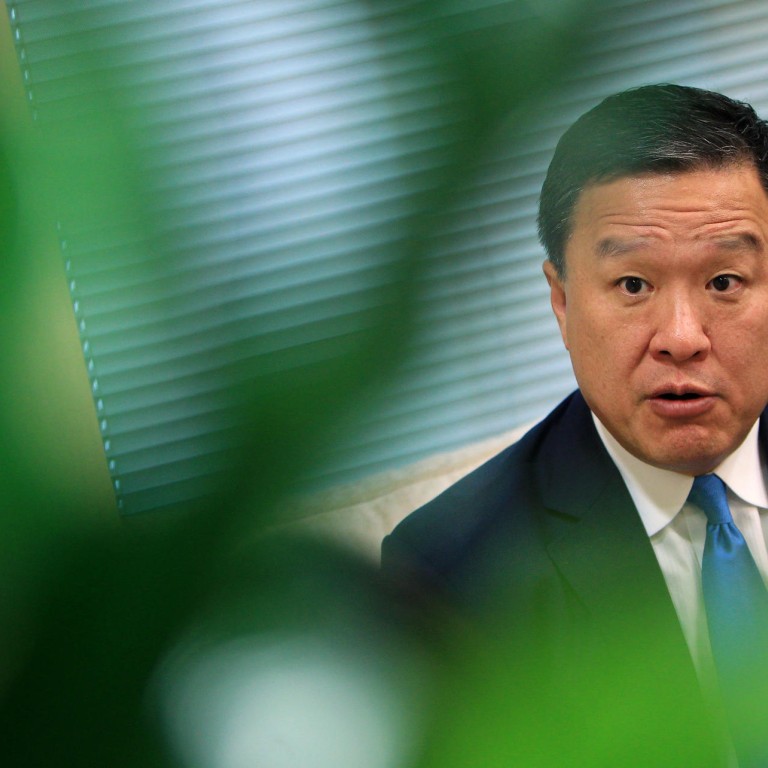
Lift deterrent to use of industrial land, URA chief Barry Cheung says
URA chief Barry Cheung says lowering land premium is one way to encourage building owners to redevelop their sites for housing
A top aide of the chief executive has floated proposals to release industrial land more quickly for housing, including reducing the land premiums that site owners must pay for redevelopment.
Executive councillor Barry Cheung Chun-yuen, who steers the Urban Renewal Authority, suggested solutions yesterday to combat the slow pace in redeveloping old industrial sites in the face of pressing demand for flats and offices.
Urban renewal aside, Cheung also highlighted an inadequacy of Chief Executive Leung Chun-ying's maiden policy address in helping the poor, in his interview with the .
Industrial sites account for 2 per cent of the city's land and are considered a useful way of helping to relieve the shortage of land for housing - at a time when residential sites make up only 7 per cent of land.
Owners of industrial buildings must pay a land premium - the fee charged to convert a plot to new or more lucrative uses - when they apply for redevelopment. It is now defined as the difference between the value of an industrial site and the value of its future development.
It is a significant disincentive, given the government's low-value assessment of industrial sites even if the land has been rezoned for other uses. The assessed value is often much lower than the market price, which takes into account the site's potential value in future development.
"Right now, developers hoping to redevelop the sites are required to pay huge premiums because the government considers only the value of the sites [before rezoning]," Cheung said. He suggested the formula for calculating premiums be revised. The government, in its land premium talks with developers, "should consider recognising the market value of industrial sites that have been rezoned for other uses".
An approval process involving other departments also hindered possible redevelopment, he noted. For example, the Environmental Protection Department would object if there was another industrial building next door that had a chimney, even if it was no longer in use.
Cheung, as URA chairman, also indicated the authority's willingness to help acquire industrial buildings with multiple owners - which had been a stumbling block in many cases.
On the widespread criticism that greeted Leung's first policy address, Cheung - who led the chief executive election campaign for his boss - refuted suggestions that the city's leader had failed to address key issues such as poverty, universal suffrage and the ageing population. "It's not a problem if he did not spell out all the issues in his first policy address," he said. "Don't forget he still has four coming. Those issues would require further public discussion and consensus.
"The key is that he has identified the priorities and will then pursue them."
But Cheung said Leung would have done better if he had given financial help to people living in poor conditions.
"We should look for ways to help relieve the pressure on the most severe cases of people living in substandard housing, like cubicles and subdivided flats in industrial buildings with safety risks," he said.

